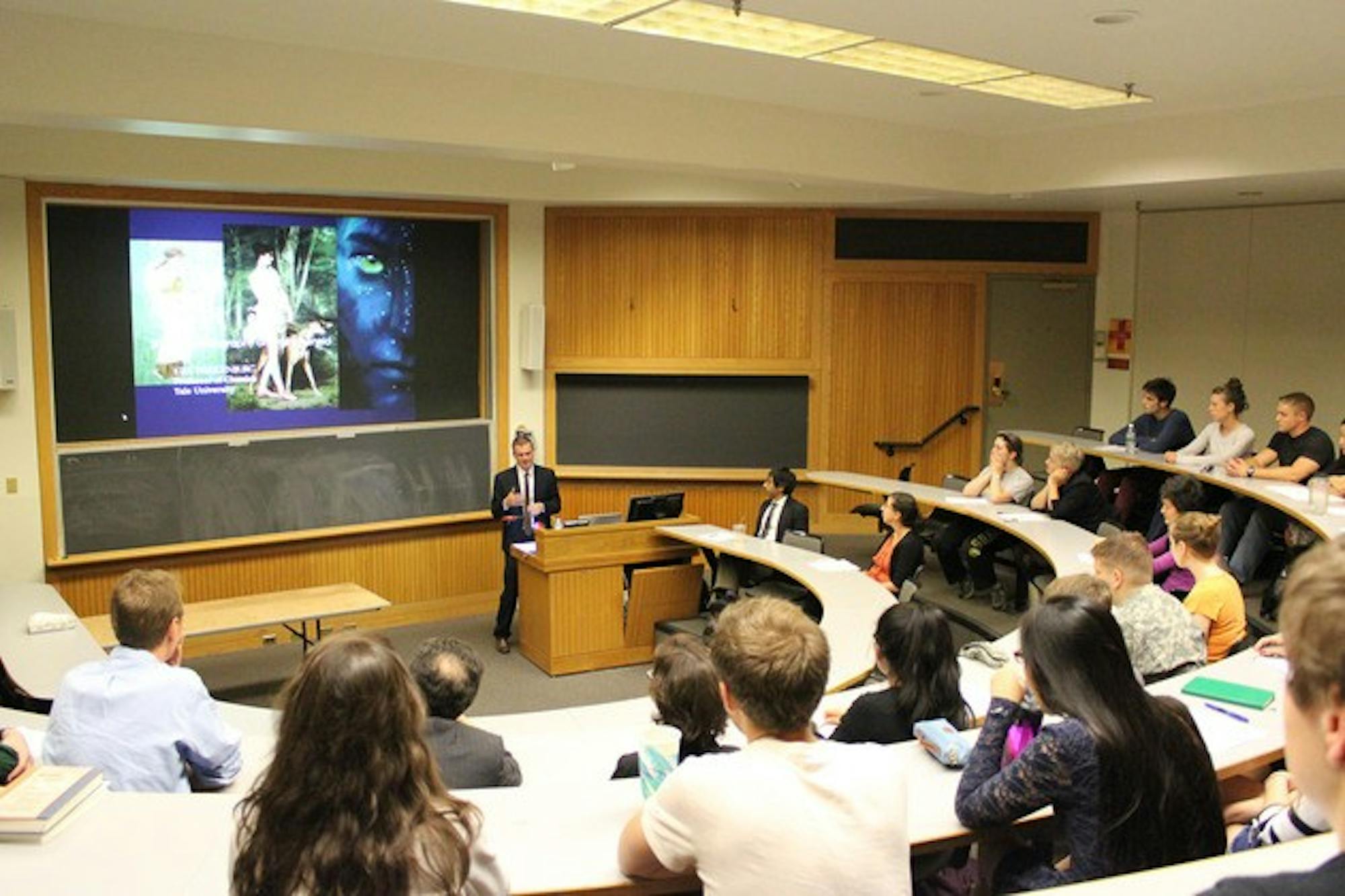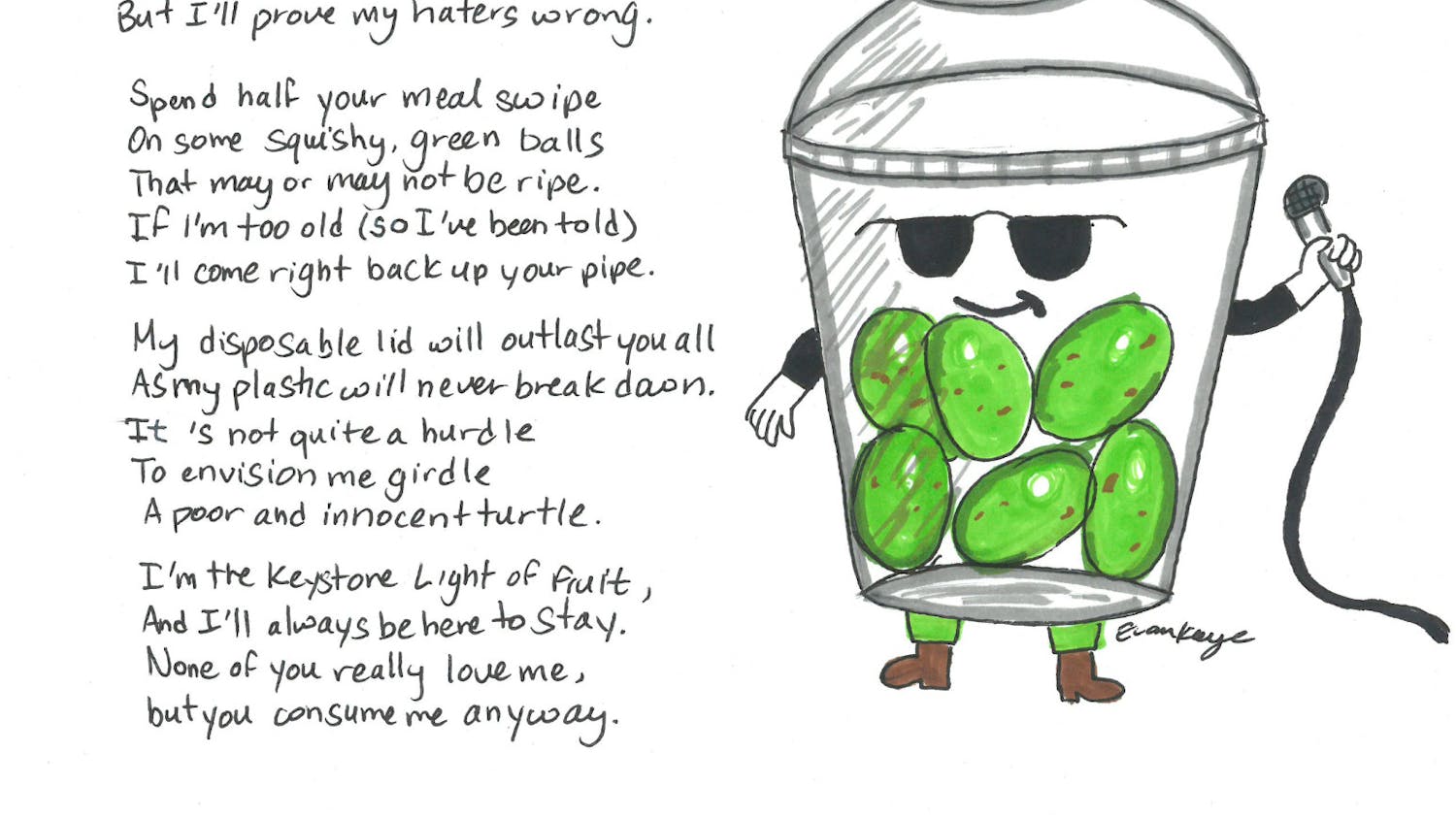Freudenburg described the lens through which Virgil focused on certain events and scenes within the epic as a camera and compared the choices that Virgil made in the poem's rhetoric to the ancient version of the tools used by directors today.
Freudenberg often referred to the original poem's literary devices to emphasize his point. A juxtaposition of bees diligently working to build their hive with the image of the citizens of fledging Rome, bustling to construct the structures required to house the young nation, showed how Virgil brought the poem to life. He said Virgil not only described the image of the bees from Aeneas's point of view, but how Aeneas foresaw images of Rome's rise into a world power and the past civilizations living on the Roman land, setting up an exciting series of foreshadowing that is "eye-catching" and "attractive," Freudenburg said.
He used cinematic language to describe Virgil's choices, moving between a traditional analysis of "The Aeneid" and the cinematic themes present in the text.
Freudenburg said Virgil effectively moved between different scenes and used detailed descriptions that the reader could easily visualize.
Virgil's ability to bring his images to life is the reason that "The Aeneid", as well as other Homerian epics that are written in a similar style, remain significant works in the Western canon, Freudenburg said. The strong imagery and cinematic techniques that Virgil used throughout "The Aeneid" would have appealed to his own audience, which would most likely have heard the poem preformed orally in an amphitheater.
The lecture concluded with a question-and-answer session with the audience, which was mostly made up of undergraduate classics majors, graduate students and professors.
The lecture is part of the Zarbin Memorial Lecture series, which was created in honor of the father of Marco Zarbin '78.




